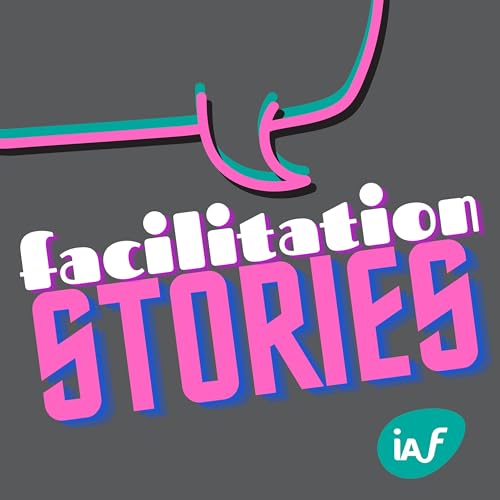In today's episode, Olivia is joined by Julia Slay, founder of Facilitation 101, to explore an often-overlooked part of facilitation: how we end sessions well. With 15+ years' experience across social policy, consultancy and learning design, Julia shares her journey into facilitation and what sparked her growing fascination with powerful endings. They talk about: Why endings matter,and common mistakes at the close of sessions — rushed checkouts, lack of closure, and clunky feedback moments. How to design meaningful endings, using buffer time, reflection, grounding and action planning. The power of circularity too. Extending the ending beyond the room, with follow-ups and reconnection sessions.Plus creative closing practices, from body-based grounding to sound and movement. Quote highlights "A strong ending creates a feeling of completeness." "Reflection without action feels unfinished." Links Today's guest: Julia Slay, Founder, Facilitation 101 https://www.facilitation101.co.uk/courses?tag=Intensive https://myfreelancelife.substack.com/?r=b48m9&utm_campaign=pub-share-checklist https://www.linkedin.com/in/julia-slay-aa02b240/ Today's host: Olivia Bellas - Coach, Faciitator, Learning Experience Designer https://www.linkedin.com/in/oliviabellas/ To find out more about Facilitation Stories and the IAF England & Wales Chapter: 🎧 https://facilitationstories.libsyn.com/ 📧 podcast@iaf-englandwales.org 🌐 https://www.iaf-world.org/site/chapters/england-wales Transcript Olivia Bellas Welcome to facilitation stories. How do facilitators end up in the profession? What methods and techniques can we learn together? And we discover it all in this community Podcast, brought to you by the England and Wales chapter of the International Association of Facilitators, also known as IAF. My name is Olivia, and today I'm talking with Julia. S. Julia is the founder and director of Facilitation 1 0 1, which began in 2023 after a simple request for a two hour session, which turned into a three day intensive. This is the course that now distills everything she wishes she'd known when she first started facilitating previous to all of this. She held a range of different roles, across social policy and charities, meaning now 15 years of experience designing and leading workshops, strategy sessions, and learning programs. So everything from away days and team development to full strategy. Retreats and international events. And in my opinion, also I must follow on LinkedIn for her generous and human sharings on navigating the world of facilitation. Julia, it's great to have you. Welcome. Julia Slay Oh, lovely to be here. And that was a very kind, generous introduction as well. Wow. Yeah. Thank you. Olivia Bellas Well, welcome. Welcome. So really looking forward to chatting today, and I know that we have a focus area. Mm-hmm. Which we will get into. So that focus area is looking at endings in workshops and why they're valuable, how we can do them. But for that, I wanted to kick off with, something that makes you smile. So thinking about your world of facilitation at the moment, what's making you smile? Julia Slay Mm, well, lots of things. I often feel like I have somehow landed doing a job that doesn't really feel like work. And surely that's like the dream. Well, it is for me anyway, that it's, , each day mostly. There are some small exceptions that mostly I feel really. Energized, focused, joyful with the work. But something that does always make me smile is when I'm running the training side of the work, I do the facilitation training through facilitation 1 0 1, and I'm in a room with really brilliant facilitators who often come from quite a wide range of disciplines, and they bring in their experience and I get to see and learn from them. Which is, which is kind of the. For me, one of the secret joys of running training is that you are learning all the time as well. And there was a course I ran a couple of weeks ago and someone who comes from a kind of theater background and has done a lot of work with, um, theater of the Oppressed was running an activity with the group and I just. Had a smile all over my face. She did an incredible job. And I kind of walked away thinking, yeah, I mean, I got to learn something new today that I've never seen before, and I absolutely loved it. So that, that brings me a lot of joy in my work at the moment. Olivia Bellas Hmm. Yeah, so you get the opportunity to, to have multiple smiles because of all of those, different perspectives of facilitators you are encountering. And actually, I'm quite. Intrigued by that. So you had someone from a theater background. , What other kinds of facilitators are you encountering? Julia Slay Yeah, well it's, it's getting much more diverse. Mm-hmm. I would say a year ago I was primarily working with and training people who were freelance. So, uh, self-employed, , people who often had a combination of kind of coaching, ...
Show More
Show Less
 27 mins
27 mins Dec 5 202534 mins
Dec 5 202534 mins 28 mins
28 mins 42 mins
42 mins 39 mins
39 mins 44 mins
44 mins Jan 21 202522 mins
Jan 21 202522 mins 36 mins
36 mins
